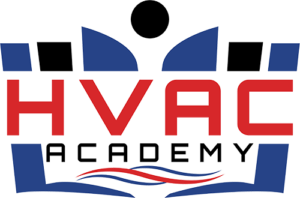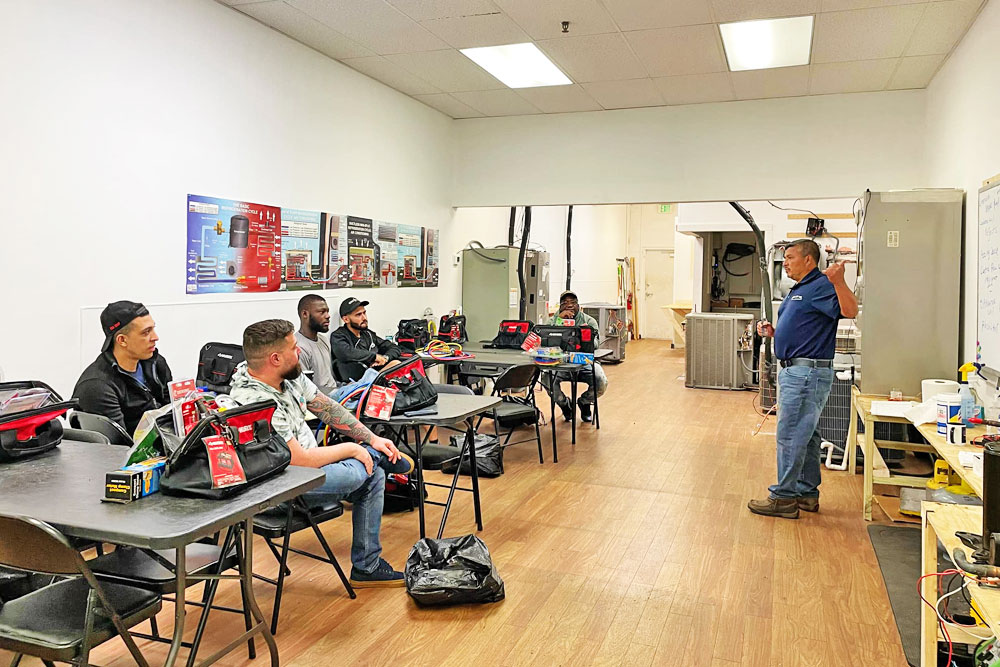HVAC (Heating, Ventilation, and Air Conditioning) certification training is a critical step for anyone looking to build a career in the HVAC industry. Whether you are new to the field or seeking to advance your skills, certification training provides a comprehensive education that covers a wide range of essential skills. This article explores the top HVAC skills you will learn during certification training and how they can benefit your career.
Understanding HVAC Systems and Components
HVAC System Fundamentals: Certification training provides a solid foundation in HVAC system basics, including how different systems work together to regulate indoor climate. You’ll learn about various types of systems, such as split systems, heat pumps, and ductless mini-splits.
Component Knowledge: You will gain in-depth knowledge about the key components of HVAC systems, including compressors, condensers, evaporators, and expansion valves. Understanding these components is crucial for diagnosing and repairing HVAC systems effectively.
Installation Techniques
System Installation: One of the core skills developed during certification training is the proper installation of HVAC systems. This includes understanding how to install various types of systems, such as central air conditioning units, furnaces, and heat pumps, ensuring they operate efficiently and meet industry standards.
Ductwork and Piping: You’ll learn how to install and configure ductwork and piping, which are essential for distributing heated or cooled air throughout a building. Proper installation is vital for system efficiency and indoor air quality.
Maintenance and Repair Skills
Routine Maintenance: Certification training emphasizes the importance of regular maintenance to keep HVAC systems running smoothly. You’ll learn how to perform routine maintenance tasks such as cleaning filters, checking refrigerant levels, and inspecting electrical components.
Troubleshooting and Repair: Developing strong troubleshooting skills is essential for diagnosing and repairing HVAC system issues. Training will cover how to identify common problems, use diagnostic tools, and perform repairs on various system components.
Electrical and Control Systems
Electrical Knowledge: HVAC systems involve complex electrical components and control systems. Certification training includes instruction on electrical theory, wiring diagrams, and safe practices for handling electrical components.
Control Systems: You will learn about different types of control systems, including thermostats and smart controls. Understanding these systems is crucial for programming and adjusting HVAC operations to meet specific temperature and comfort settings.
Refrigerant Handling
Refrigerant Types: Knowledge of different refrigerants and their properties is an essential part of HVAC training. You will learn about various refrigerants, including their environmental impacts and how to handle them safely.
Leak Detection and Recovery: Certification training covers techniques for detecting and repairing refrigerant leaks, as well as proper recovery and disposal methods. This skill is crucial for maintaining system efficiency and complying with environmental regulations.
HVAC System Design and Load Calculations
System Design Principles: Understanding how to design HVAC systems that meet specific building requirements is a key skill. Training will cover principles of system design, including how to size equipment based on building load and climate conditions.
Load Calculations: You will learn how to perform load calculations to determine the heating and cooling needs of a building. Accurate load calculations are essential for selecting the right equipment and ensuring optimal system performance.
Customer Service and Communication
Client Interaction: HVAC technicians often interact directly with clients. Training will help you develop effective communication skills, including how to explain technical issues to non-technical clients and provide excellent customer service.
Professionalism: Learning how to present yourself professionally and handle customer concerns is an important aspect of HVAC training. Building positive relationships with clients can lead to repeat business and referrals.
Health and Safety Practices
Safety Protocols: Safety is a top priority in HVAC work. Certification training includes instruction on proper safety practices, including the use of personal protective equipment (PPE), safe handling of tools and equipment, and procedures for working in potentially hazardous environments.
Regulatory Compliance: You will also learn about compliance with industry regulations and standards, such as those set by the Occupational Safety and Health Administration (OSHA) and the Environmental Protection Agency (EPA).
HVAC certification training equips you with a diverse set of skills that are essential for a successful career in the industry. From understanding system components and installation techniques to mastering maintenance, repair, and safety practices, the skills you acquire during training will prepare you for a wide range of HVAC challenges. By gaining these skills, you’ll not only enhance your job prospects but also contribute to delivering high-quality HVAC services and ensuring client satisfaction.
Whether you are just starting your career or looking to advance, investing in HVAC certification training is a valuable step toward achieving your professional goals.
Register for our HVAC Technician Training Program for a brighter future ahead. Contact us.






Leave A Comment